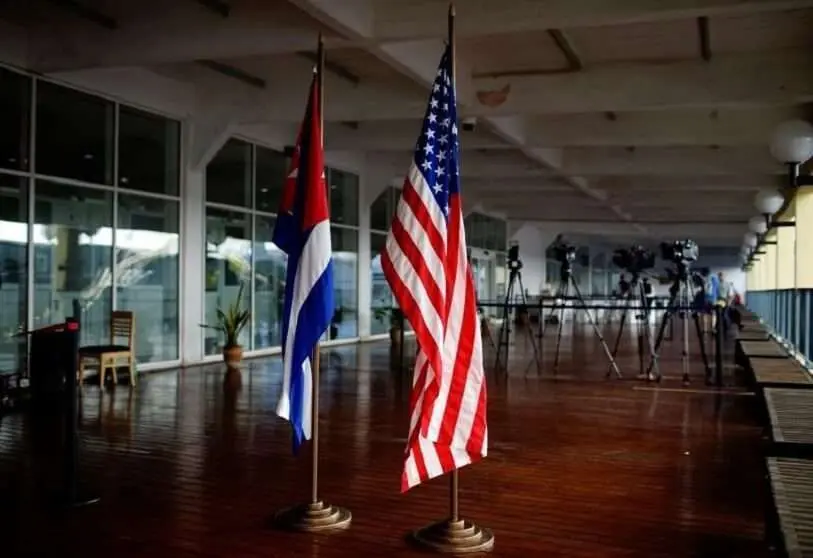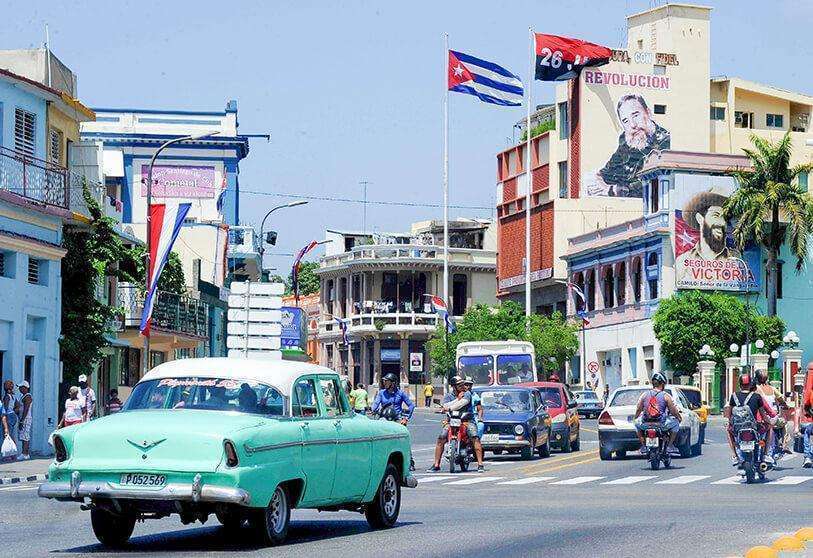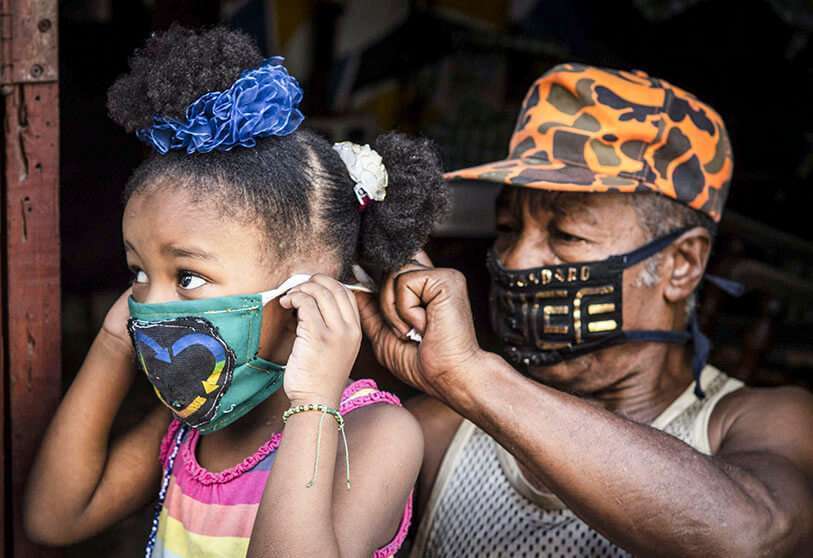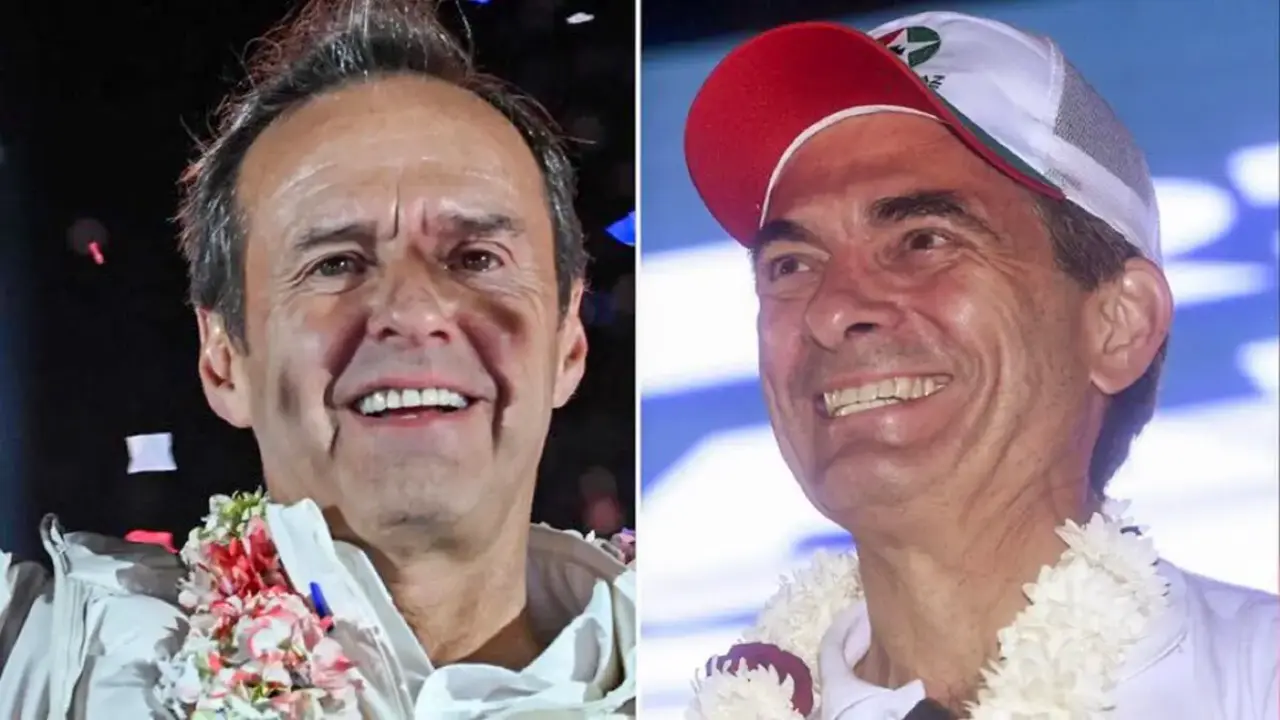Cuba and the United States: A History of Encounters and Disagreements

On December 17, 2014, the then president of Cuba, Raúl Castro, and his U.S. counterpart, Barack Obama, announced the decision to re-establish diplomatic relations between the two nations. Since Fidel Castro temporarily ceded power to his brother Raul, the vice president and minister of the armed forces, Cubans have been living through a significant moment in the history of the island. With the apparent reestablishment of diplomatic relations, a new stage began with new challenges and, above all, opportunities for the two states; a stage that has changed the political atmosphere in both regions and has transformed the hemispheric dialogue between the United States and Latin America.
Despite the tense diplomatic relations between both nations, Cuba has always occupied a special place in U.S. foreign policy. For more than half a century, the American giant has been referring to the Caribbean island as "a threat to the stability of the Western Hemisphere". However, this situation changed when former US President Barack Obama decided to use his constitutional prerogatives to establish diplomatic relations with a nation he has considered an enemy for more than 50 years.
Attempting to understand Washington's conflict with Havana through its history is not enough reason, but it is necessary to resolve what has been a hegemonic paradox in US policy towards Cuba over the last few years. In this sense, Obama decided to pursue a different strategy to confront US policy towards Latin America.
In 2015 there were a number of factors that contributed to this historic rapprochement between the two countries. In Cuba, he had to see the transition process initiated on the island since Raúl Castro replaced his brother Fidel, while in the United States, Obama decided to change the course of US policy on this issue and base it on cooperation rather than confrontation. Even so, there are still many issues to be resolved between the two countries, issues that are fundamentally based on the differences that underlie their ideological differences.

On November 8, 2016, two weeks before Fidel Castro died at the age of 90, Donald Trump won the presidential election and reversed the reconciliatory springtime initiated by Barack Obama. This action showed the world that ending the embargo between the two countries would be a long and far from simple process. The confrontation between the two nations has continued, as shown by the latest action taken by the Office of Foreign Assets Control (OFAC), which reported on July 8 that it would fine the company Amazon for maintaining commercial ties with the Cuban Embassy in Washington.
The air of change promoted by Barack Obama translated for a few months into different regulations adopted by the Departments of Commerce and Treasury. These increased the opportunities for Americans to travel to the island or be allowed to sell agricultural and construction technology to Cuba. Just five days after these measures were announced, Barack Obama urged Congress in his State of the Union address to lift the embargo to bring U.S. policy toward Cuba into the 21st century.
Five years ago, just as today, the Cuban flag flew again in Washington for the first time in 54 years in front of a new embassy where Cuban Foreign Minister Bruno Rodriguez opened a new and "complex" phase in the relationship between the two countries. Even so, it was not until September that the first bilateral commission between the two nations took place. That same month, Raul Castro traveled to the United States to participate for the first time in the UN General Assembly and meet with his US counterpart.
The year 2016 began with the hope of ending more than 50 decades of disagreement. On January 12, during the State of the Union address, Obama urged his country to end the blockade imposed on Cuba. The rapprochement between the two countries became a reality during the following months, when direct mail service was re-established or different economic regulations came into force. In March of that same year, Barack Obama became the first U.S. president to set foot on the Caribbean island in the last 60 years.
The history of these complicated diplomatic relations took another turn with the arrival of Donald Trump to power. The hope and the airs and graces of openness were relegated to the background. Even so, on January 12, 2017, a new migration agreement was signed in Havana that ended the wet-foot-dry policy. Trump's policy since then has been to strain relations with the Caribbean island's leaders. In March 2017, a State Department report was released that included Cuba on its list of top money laundering sites. Sanctions began to arrive again shortly thereafter, when the Treasury Department imposed several fines on companies in his country for violating the economic blockade imposed on Cuba.

This same rhetoric imposed by Trump continued during the following years. Thus, on 10 September 2018, Donald Trump renewed the Trading with the Enemy Act, a regulation that is more than 100 years old and supports the economic blockade imposed on Cuba. In 2019, the US country extended its blacklist of Cuban companies for allegedly being "controlled by the military services", according to information gathered by the Xinhua news agency. In September of that same year, the Treasury Department completely changed the Cuban Assets Control Department in order to impose new sanctions on the island.
The sanctions imposed by the United States on Cuba have been at the forefront of diplomatic relations between the two countries in recent months. Thus, the Secretary of State, Mike Pompeo, reported the application of this type of coercive measures against the Minister of the Revolutionary Armed Forces of Cuba, General Leopoldo Cintra Frías for supposedly supporting the Venezuelan Executive. This situation has worsened with the appearance of COVID-19, since, due to the blockade, the Caribbean island has not been able to acquire pulmonary ventilators to treat the victims of this disease, because, according to the Xinhua agency, the usual suppliers are owned by the US company Vyaire Medical Inc, which suspended commercial relations with the island.








